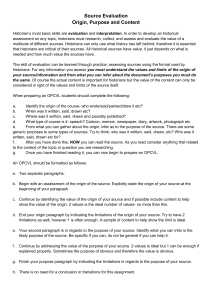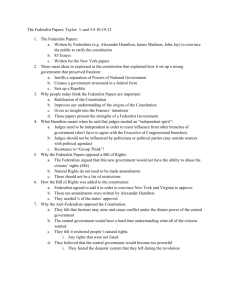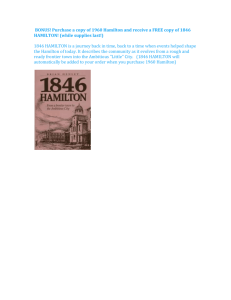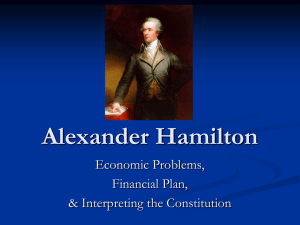OPVL
advertisement
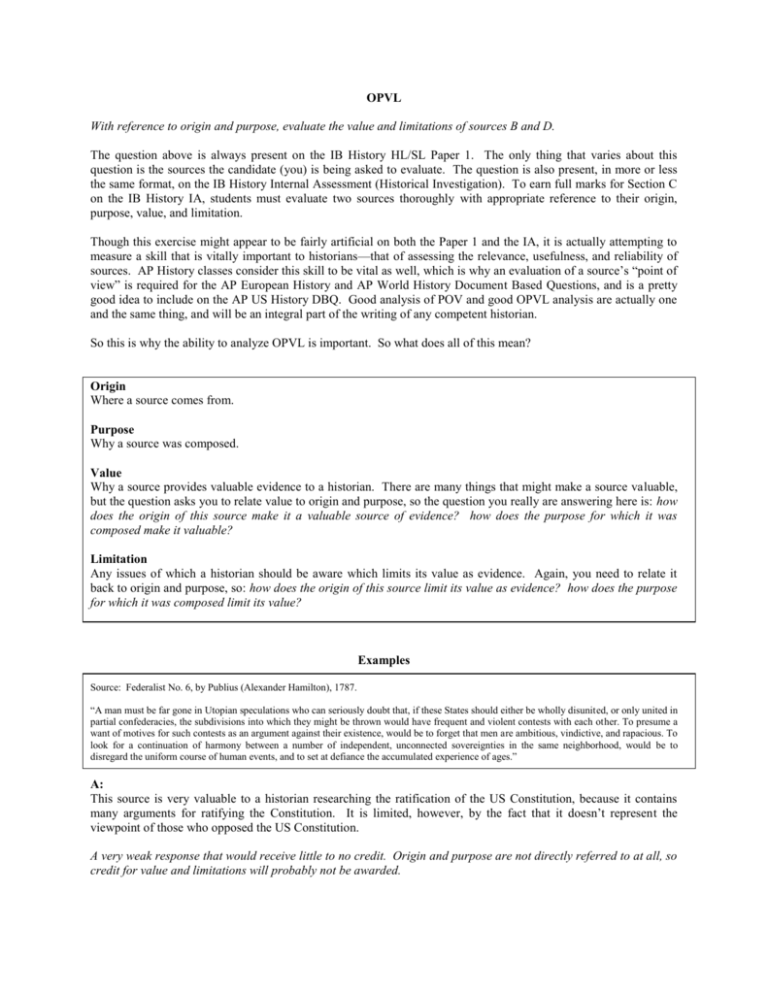
OPVL With reference to origin and purpose, evaluate the value and limitations of sources B and D. The question above is always present on the IB History HL/SL Paper 1. The only thing that varies about this question is the sources the candidate (you) is being asked to evaluate. The question is also present, in more or less the same format, on the IB History Internal Assessment (Historical Investigation). To earn full marks for Section C on the IB History IA, students must evaluate two sources thoroughly with appropriate reference to their origin, purpose, value, and limitation. Though this exercise might appear to be fairly artificial on both the Paper 1 and the IA, it is actually attempting to measure a skill that is vitally important to historians—that of assessing the relevance, usefulness, and reliability of sources. AP History classes consider this skill to be vital as well, which is why an evaluation of a source’s “point of view” is required for the AP European History and AP World History Document Based Questions, and is a pretty good idea to include on the AP US History DBQ. Good analysis of POV and good OPVL analysis are actually one and the same thing, and will be an integral part of the writing of any competent historian. So this is why the ability to analyze OPVL is important. So what does all of this mean? Origin Where a source comes from. Purpose Why a source was composed. Value Why a source provides valuable evidence to a historian. There are many things that might make a source valuable, but the question asks you to relate value to origin and purpose, so the question you really are answering here is: how does the origin of this source make it a valuable source of evidence? how does the purpose for which it was composed make it valuable? Limitation Any issues of which a historian should be aware which limits its value as evidence. Again, you need to relate it back to origin and purpose, so: how does the origin of this source limit its value as evidence? how does the purpose for which it was composed limit its value? Examples Source: Federalist No. 6, by Publius (Alexander Hamilton), 1787. “A man must be far gone in Utopian speculations who can seriously doubt that, if these States should either be wholly disunited, or only united in partial confederacies, the subdivisions into which they might be thrown would have frequent and violent contests with each other. To presume a want of motives for such contests as an argument against their existence, would be to forget that men are ambitious, vindictive, and rapacious. To look for a continuation of harmony between a number of independent, unconnected sovereignties in the same neighborhood, would be to disregard the uniform course of human events, and to set at defiance the accumulated experience of ages.” A: This source is very valuable to a historian researching the ratification of the US Constitution, because it contains many arguments for ratifying the Constitution. It is limited, however, by the fact that it doesn’t represent the viewpoint of those who opposed the US Constitution. A very weak response that would receive little to no credit. Origin and purpose are not directly referred to at all, so credit for value and limitations will probably not be awarded. B: This source by Alexander Hamilton is valuable because Hamilton lived in the United States at the time, and so knew very well the dangers facing the United States. He is writing Federalist Number 6 to explain that if the states do not unite, they will fight, and so this source is valuable to a historian studying the early republic. This response gets credit for origin, because the candidate says that it is Federalist 6 by Hamilton, though the candidate could have elaborated upon who Hamilton was. Saying he was present in the US at the time (in essence that Hamilton is a primary source) is weak, but will get some credit for value, because it explains why being in the US at the time would give Hamilton knowledge of value to a historian. No credit is awarded for purpose. Though the candidate uses the word “purpose” what he writes is not Hamilton’s purpose for writing, but only the opinion he writes. But why is Hamilton bothering to write his opinion in the first place? Answering this question would answer what Hamilton’s purpose is. Limitation is not mentioned at all, so no credit for that, either. C: This source, written by Alexander Hamilton in 1787 for the purpose of convincing Americans to support ratification of the new US Constitution, is extremely valuable to historians researching the early period of the republic. A key item of value is that it contains many reasons for ratifying the Constitution. It is limited, however, by the fact that it doesn’t represent the viewpoint of those who opposed the US Constitution. Better than A, but still weak (on the level of B, though for different reasons). Origin and purpose are clearly stated, but there is no clear link between origin/ purpose and the value/ limitations stated. D: Federalist No. 6, a part of the Federalist Papers, written by Hamilton, Madison, and Jay in 1787-88 are of great value to historians because they contain the thoughts of three key members of the US Constitutional Convention, therefore a historian studying the founding of the republic can gain insight into the minds of three of the founders (or one, in the case of Federalist No. 6). As their purpose was to convince Americans to support ratification of the Constitution, they clearly explain the strengths of the Constitution, giving a historian insight as to what three founders viewed as strengths of the framework of government that they had created. It is limited, though, by the fact that it doesn’t really give any arguments from the Anti-Federalists, telling historians little about the reasons why they opposed the US Constitution. A good job on linking origin to value, stating who the authors were and why a historian would be interested in their opinions. It also does a good job with purpose and value, stating why their purpose for writing would cause Hamilton, Madison, and Jay to discuss matters of interest to a historian. Limitations are still extremely weak, however. Just because someone is NOT someone else does not provide a good argument for limitation. No one is two people, so something you could say about any source isn’t going to win you any points. E: Federalist No. 6, written by Alexander Hamilton in 1787 is a primary source. Since Hamilton was there, the source is of value to a historian. He wrote the Federalist Papers in order to convince people to ratify the US Constitution, though, so he may have exaggerated some of the document’s benefits in order to win supporters. Because of this, historians may not get a clear picture of whether he believed that there were any weaknesses in the new Constitution. E does a good job with Purpose linked to Limitations. A motive to exaggerate or distort is a limitation, as long as you explain why the author might exaggerate and how that would limit a historian’s interpretation. E is much weaker than D, however, when it comes to origin and value. It is not enough to say a source is valuable because it is a “primary source”. You will not magically score marks simply be using these words. The candidate says Hamilton was “there” without even specifying where “there” was, much less telling us why it helps that he was “there” or why he would be qualified to comment upon what he saw “there.” If Bobo the chimpanzee were present at the Constitutional Convention, his testimony would not be nearly as valuable as that of Hamilton or Madison, despite the fact that he is a “primary source.” You must answer the question: who is the author and why does this give the document value or limit its value? For Bobo, one would say “Bobo was a chimpanzee. Though he was present at the Convention, he had little conception of what was going on, which gives his account little to no value as a source to historians, even though it is a ‘primary’ source.”
